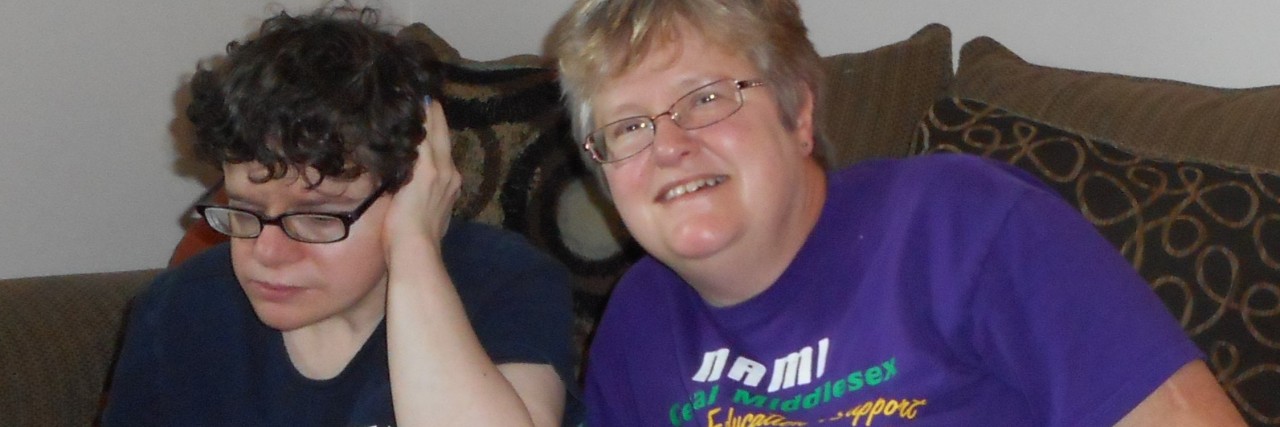“Do you want to go to CVS?” I ask Ramey, although I already know the answer.
She lights up like a Christmas tree, a smile spreading across her face, and says, “Yes,” her voice trailing out the “s,” as she tends to do when she says words with an “s” at the end.
“All right!” I say, “Let’s go!”
This is one of Ramey’s favorite things to do. When we enter the store, she makes a beeline for the refrigerated glass case full of sodas and juices. She takes her time looking them all over and mindfully makes her choice. When we leave the store, she hugs her soda to her chest as though it were a piece of gold.
We’ve been doing this for close to 20 years. We’re now riding out our middle ages together. I was the first to start getting gray hair. She was the first to get bunions.
I first met her when I was finishing college, working with the special needs population, and needing a place to live. Her family had a room for rent, so I moved in with the arrangement that I would be a companion to Ramey in return for a lowered rent.
When I first met her, I fell in love. She was child-sized, with thick, dark runaway hair and a gap-toothed smile. And she was full of intrigue. I was told she had Down syndrome, but she wasn’t stereotypically social. She also had autism and would operate in a world of her own at times. She struggled to verbalize what was on her mind, using a pen and paper and partial words and sentences.
I was full of idealistic energy back then and was delighted to have what I considered a new project. I was convinced that with my behavioral modification skills I would shape Ramey into something as close to “normal” as possible. I created motivational charts to teach her how to better brush her teeth and to refrain from slapping at her ear when she was frustrated. I worked to help her better express herself verbally, jumping on every word she eked out and trying to stretch it into sentences. I discouraged her from outfitting herself in other people’s clothes without their permission, as she tended to do.
Twenty years later Ramey still helps herself to other people’s clothes, is no better at brushing her teeth than when I first met her, and hasn’t become a chatty Cathy. Instead, she has taught me that “normalcy” isn’t everything it’s cracked up to be. It can be more fun to dance in the middle of the street whenever you get the urge, to never grow out of SpongeBob SquarePants and to strive for a diet consisting only of ice cream and hot fudge.
And although we’re both living in separate homes now — she in a group home and me in an old apartment — our lives have become so entwined that we are no different than biological sisters. We spend weekend time together, eating brunch at our favorite breakfast joint, taking train rides into Boston to visit friends, and hanging out in my pad watching her favorite videos, one of which is from the Rocky movie, with Sylvester Stallone running victoriously through the streets punching at the sky to music that makes you want to get out of your easy chair and run forever.
One of the greatest gifts Ramey has given me is a deep appreciation for the moon. She has a special place in her heart for it and often checks to make sure it’s in the sky. “Love moon,” she proclaims.
I put my arm around her reassuringly. “I know you do, Ramey. It’s always up in the sky for you.”
We admire it together, and then we make our way to CVS.
The Mighty is asking the following: What’s one thing people might not know about your experience with disability, disease or mental illness, and what would you say to teach them? Check out our Submit a Story page for more about our submission guidelines.
Have you seen the first film with a national release to star a person with Down syndrome? Check out the film “Where Hope Grows” today!

